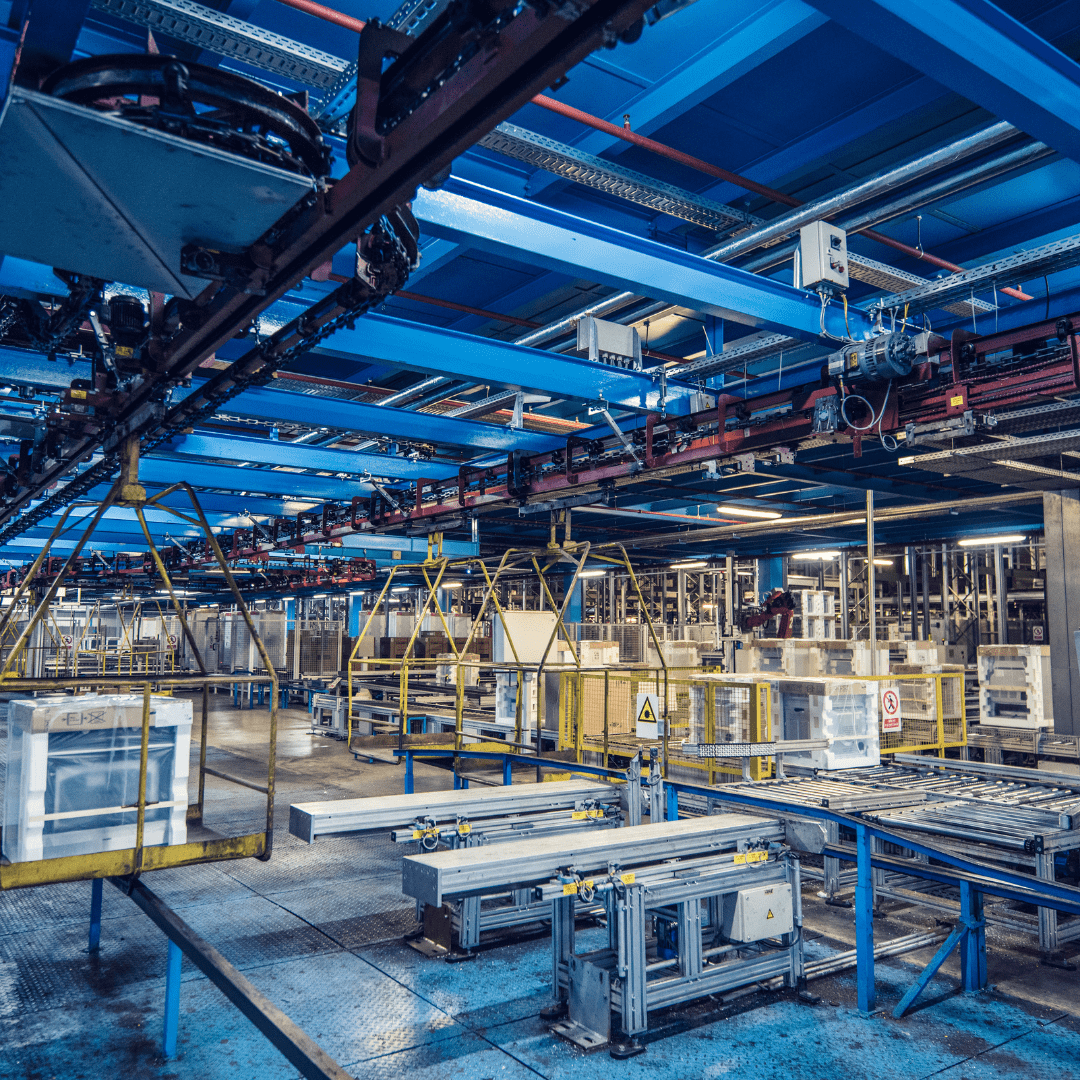
Both large and small manufacturers are at risk of cyberattacks. These attacks can be disastrous, especially when the company is unprepared. While no company is immune, good cybersecurity practices can help thwart cyber threats in manufacturing.
Cyber Threats in Manufacturing
The manufacturing industry has a target on its back. According to the 2022 IBM Security X-Force Threat Intelligence Index, manufacturing surpassed the finance and insurance sectors to become the most commonly targeted industry for cyberattacks. In fact, in 2021, 23.2% of all cyberattacks targeted the manufacturing sector. Assembly warns that cyber threats can shut down assembly lines and factories.
Manufacturers are vulnerable, in part, because they are reliant on technology. Plus, as they typically have little tolerance for downtime, they may be willing to pay hackers large sums of money to recover their systems as quickly as possible, which makes them attractive targets. For example, The Wall Street Journal says meat producer JBS paid a ransom of $11 million to avoid further disruptions after a cyberattack.
Common Manufacturing Industry Cyber Risks
The manufacturing industry faces numerous, sometimes interrelated, cyber risks. These include:
- Ransomware is often what people think of when they think about cyberattacks.
- Data Breaches. IBM says the global average cost of a data breach is $4.45 million, as of 2023, and costs have increased by 15% over the last three years.
- IBM says phishing is the most common vector for cyber infections, accounting for 41% of all attacks.
- Supply Chain Vulnerabilities. It’s not just your own cybersecurity you need to worry about – if your vendors or suppliers experience an attack, your supply chain could grind to a halt.
- Industrial Espionage. Many attacks stem from hackers looking for an easy payday, but illegal industrial espionage is another threat. Unscrupulous competitors could try to access your trade secrets to gain an unfair advantage.
Impact of Cyberattacks on Manufacturing
A cyberattack that strikes a manufacturing company can be devastating.
- Computerized systems may become inoperable. Since factory machines typically rely on automation, this may mean all operations need to pause until you’ve addressed the situation.
- Data breaches may expose sensitive data. In addition to company trade secrets, hackers may get their hands on financial information, vendor details, and even employee data.
- Supplies may spoil. If operations are delayed, supplies and materials may cease to be usable.
- Physical damage is possible. Cyberattacks do not typically lead to physical damage, but it is possible. According to The Washington Post, experts have identified “a small but growing catalogue of malware capable of triggering physical impacts.”
- Relationships may suffer. Your clients rely on you for timely deliveries. If you are unable to meet deadlines due to a cyber incident, your clients may conclude that they can no longer rely on you. Data breaches that impact clients and partners may also degrade trust.
- Costs may mount. In addition to the ransom demands, expenses include costs related to compliance, investigations, communication, data recovery and business interruption.
Emerging Cybersecurity in Manufacturing Trends
Cybersecurity trends are always evolving as new risks develop.
Internet of things (IoT) security in manufacturing is a growing concern. Forbes explains how the IoT is transforming manufacturing. Whereas this can increase efficiency, each IoT endpoint becomes a potential vector for a cyberattack. In fact, Forrester says 33% of global security decision-makers identify corporate IoT devices as the top target for external cyberattacks.
Developments in AI and predictive analytics are also impacting cybersecurity. Cybercriminals can use AI in numerous ways, including for writing phishing messages, crafting code, and hacking passwords. Although that may sound alarming, the good guys can also use AI – to mitigate cyber risks. For example, Moneycontrol says Palo Alto Networks is using predictive analytics to enhance cybersecurity operations. Security Boulevard explains that predictive analytics are a core component of a successful cyber threat analysis, which can help organizations understand potential threats.
Best Practices to Protect Manufacturing from Cyberattacks
Cyberattacks are a serious threat, but manufacturers can mitigate their risks with a proactive approach.
Unfortunately, you might be less prepared than you think. Travelers warns that, although 90% of businesses say they are confident they have implemented best practices, most have not even implemented basic cyber prevention measures.
Don’t wait until a cyber incident occurs. Make sure you’re following cybersecurity best practices, including:
- Password Management and Multifactor Authentication. Strong passwords combined with multifactor authentication (MFA) can keep accounts safe from hackers.
- Data Backup. If your data is compromised, a secure backup will minimize downtime.
- Firewall and Antivirus Protection. These basic measures can stop many attacks from impacting your systems.
- System Updates and Security Patches. Network security in manufacturing is impossible with outdated systems that have known vulnerabilities that hackers can exploit.
- Employee Security Training. As many attacks start with phishing and other social engineering strategies, your people are just as important as your hardware and software in terms of cybersecurity. Regularly train and test your team to watch for threats.
- Secure System Configurations. Good industrial control system security is a must. Tactics may involve measures such as least privilege network segmentation. Conduct an assessment to identify and correct vulnerabilities.
- IoT Devices. When securing your systems with strong passwords, MFA, and other measures, don’t overlook IoT devices.
- Cyber Incident Response Plan. If a cyber incident occurs, quick action can minimize the damage and costs. Your plan should include how you will respond to various types of attacks against your own company as well as how you will deal with disruption to your suppliers and other partners.
Do You Have the Right Cyber Insurance?
Travelers reports that 31% of manufacturing companies lack cyber insurance. If you are hit by a cyberattack, cyber insurance can offset the costs and guide you through the process of responding to the threat and its many implications.
Contact the team at Watkins Insurance Group to discuss cyber insurance for your manufacturing operations.







